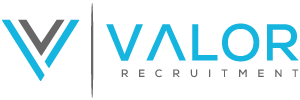How Recruitment and Consulting Will Look In 5 Years
Automation, planning and implementation, and improved integration with corporate goals will all be part of the future of recruitment and consulting. Recruitment and consulting are more than merely selecting candidates for open positions in the upcoming quarter, year, or term. You must take into account the shifting hiring patterns that have not yet affected your firm. In order to be effective, a recruitment plan must address both the demands of the present and those of the future.
Is it possible to hire people today for positions that may not even exist yet? How do you get ready for the economic ups and downs? How do you even predict what your business will need in five or ten years? Consulting on the other helps people to make the best choices for them and their company. The pandemic had jump started the advancements of recruitment and consulting so below are the current trends that is slowly shaping the future of recruitment consultants and possible image of the future of recruitment and consulting.
Trends for Recruitment and Consulting
Improving Human Capita
People are the most important component of transformation success. Covid-19 is still present till this day, the pandemic had and will cause a significant digital skills gap to appear during the ensuing years. Organisations are searching for a recruitment consultant partner who will supplement their present skills and magnify existing competencies due to the pressing need for reskilled and up-skilled staff.
As a result, recruitment consultancies in Australia will create products that support client teams rather than substitute for them. It will also feature executive dashboards to track KPIs, best-practice training for potential future use cases, the transfer of properly documented code, and a thorough transition phase for ongoing training. Recruitment and consulting agencies will ensure lasting change that will help their teams in a challenging business environment by partnering with clients from the inside out.
Hybrid Models are In!
Organisations now have a rare opportunity to access a fresh pool of talent that may have previously been unreachable due to geographic and location restrictions, thanks to the shift to remote working. Using a hybrid paradigm of near-shore and off-shore teams, consultants are expected to deliver transformation projects with seamless multi-geography launches in the coming normal.
Traditional models will change to on-demand consulting services at scale, deploying employees from any place into any project depending on skill demands and availability, free from the constraints of time zones and travel restrictions. In addition, collaboration and video conferencing technologies will no longer be the exclusive forms of digital distribution.
Greater Senior-Level Involvement Is Necessary for Success
The business engagement model is one of the significant adjustments that the consulting sector needs to make. Senior partners typically occupy the narrow band at the top of the pyramidal structure used by consultants to interact with clients. Senior partners’ involvement in projects typically doesn’t go beyond presenting the initial proposal, showing up at a few important meetings, and summarising the results. Junior and mid-level consultants make up the larger base of the pyramid; they are not only responsible for performing most of the actual work but also serve as the primary daily point of contact with the client.
Open Consulting is the New Way
The conventional pyramid paradigm needs to be altered in other ways, notably in regards to how pertinent expertise is obtained. Many consulting firms have traditionally relied excessively on their own internal expertise to respond to client briefs, or they have hurriedly attempted to hire relevant personnel to fill knowledge gaps, resulting in hastily constructed teams that are frequently poorly integrated.
This philosophy is motivated by a goal to maximize margins, maintain internal control, and exclude external inputs in order to manage internal procedures. Offering the greatest skills for each project should be the first priority for a company that genuinely values its customers.
Asset Consultancy with a Value-Focus
Today’s businesses must operate at breakneck speed to deliver personalised services that produce fanatical levels of client satisfaction—all while maintaining laser-focused cost control. Future recruitment and consulting models will reflect this, moving toward outcome-based and fixed price engagements that allow for more responsibility and transparency.
To satisfy the demanding requirements of organisations, consultants will need to provide ideas and business cases with a clear and unambiguous ROI in mind, proving demonstrable cost take-out, savings, and genuine quantitative value creation. The creation of self-sustaining products and assets, including sales and delivery material, pre-existing tools that calculate specific value potential, and a variety of pre-tested prototypes that can be implemented in a very short period of time, will be added to this by consultants.
Automation and Moral AI
Businesses now place a high importance on having a “digital-first agenda,” and they will seek a partner who can demonstrate their own innovations and bring savings to the project. Inevitably, in the near future, a sizable percentage of administrative recruitment and consulting work will be automated, allowing teams to concentrate on higher value and customer-facing duties.
However, as automation grows, so does the need for self-regulation. As a result, recruitment consultants will also be expected to take the lead on these new technologies’ ethical issues, including how to implement smart AI while maintaining privacy protections, avoiding bias in algorithmic decision-making, and adhering to regulations in highly regulated sectors. Future recruitment consultants will provide resources for developing and utilizing AI responsibly, precisely, and ethically to staff, clients, and partners .
In the post-pandemic world, doing things the same way no longer works. The uncertainty caused by Covid-19 made it clearer than ever before that a new consulting paradigm is required. Recruitment agencies will be expected to assist organisations in resolving their most complex problems by utilising the power of disruptive technology, with sustainable and long-lasting change coming from inside the clients themselves. This will include ideation, strategy, execution, and delivery.
Contact Us










